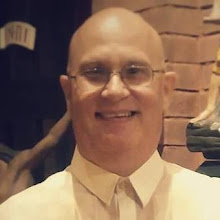“He that troubles his own house shall inherit the wind:
and the fool shall be servant to the wise of heart”
Proverbs 11:29
Written by Jerome Lawrence and Robert Edwin Lee (who also did “Auntie Mame”), Inherit the Wind is a fictionalized account of the 1925 Scopes "Monkey Trial" which resulted in Scopes' conviction for teaching Darwin's theory of evolution to a high school science class.
The play and movie’s characters Matthew Harrison Brady, Henry Drummond, Bertram Cates and E.K. Hornbeck correspond respectively to the historical figures William Jennings Bryan, Clarence Darrow, John Scopes, and H.L. Mencken, of the Scopes Trial.
Strangely enough, the play and subsequent movie were not intended as a docu-drama about the Scopes trial, but as an indictment of the Mc Carthy era, which when the play was written, had gripped the nation. Matthew Brady was more Joseph Mc Carthy than William Jennings Bryan.
Unfortunately, a long tradition of misinterpretation has cast Inherit the Wind as a reasonably true account of the 1925 trial. By 1955, few remembered the Scopes Trial and it was rarely mentioned in texts or reference works. With the overwhelming success of the play (it is highly possible that every high school drama department has performed the play at one time or another) and movie, and few around to refute it, the impression was made that Inherit the Wind was based in fact. For example, I always remembered (probably from seeing the play) that during the trial, the cool and methodical Darrow made the blustering
Far from the truth.
Scopes himself was a willing participant in the whole affair, and was never in danger of being imprisoned or lynched by angry, hymn singing crowds. Scopes was persuaded by a group of local businessmen to challenge the law after hearing that the ACLU wanted a test case to challenge the law. The state made the teachers at the time use a particular text and that text included reference to evolution. One of the intents was to expose this paradox and show that the state was mandating that teachers break the law. Scopes himself later claimed that he never actually taught the section on evolution to this class.
As for the climactic scene where Brady tries to read his hellfire and brimstone remarks to the jury, even after Scopes had been found guilty, and falls down dead; none of that took place in the trial. However, Brady's final antics and hysterical rant in the courtroom has a counterpart in McCarthy's last Army-McCarthy Hearing on June 17th, 1954 when Mc Carthy’s similar fit of rage abruptly ended his witch hunt. That event would have been fresh on the minds of those who saw the play and movie in the late 50’s.
It is a given fact that sometimes true events need embellishment for the sake of stage and screen drama. The Scopes trial was more than likely a bland affair, as most trials are. Inherit the Wind may take liberties with the absolute facts, but its themes of tolerance, bigotry, hysteria, freedom of thought and expression and separation of church and state resonate even today. Lawrence and Lee, in their introduction to the play stated, “It might have been yesterday. It could be tomorrow."
Thus Inherit the Wind, this masterpiece of stage and screen, warns of the dangers inherent in repeating the wrongs of the past, which, as we have seen, haunt us still if we are not willing to be vigilant.
(As a total aside from all of this, the movie has some other interesting bits of trivia. The young Leslie Uggams performs the opening and closing vocals, Dick York played "Bert Cates" the John Scopes based character, York is more famous as the first Darrin on Bewitched and his subsequent resignation from the show due a painful back injury and addiction to painkillers. Norman Fell, immortal as Mr Roper from "Three's Company" played a reporter. Florence Eldridge gets a whole screen credit page to herself. Who??, M and I asked. She was an actress with many stage and film credits from the 30's and Fredric March's wife.)


No comments:
Post a Comment